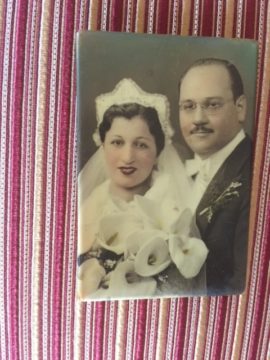by Barbara Fischkin
 I once wrote a political column for Fox News. My point of view was liberal and at times decidedly leftist.
I once wrote a political column for Fox News. My point of view was liberal and at times decidedly leftist.
This is true-true and not fake news.
The notorious Fox was then a media baby, albeit an enormous one. At its American launch in 1997, it already had 17 million cable subscribers. Millions of Americans looking for a conservative alternative to CNN and company.
Two years later I was hired, as a freelancer, to write an opinion column for a nascent website: Fox News Online. Back then, the television screen ruled. The website was an experiment, to see if the Internet was real. I was told I could opine as I wished, as long as the facts backed me up and I was not libelous or incoherent. A cartoonist was assigned to illustrate my words.
When I was first approached about writing this, I thought it was a practical joke. A dear friend and former newspaper colleague showed up one morning in our family backyard and told me to stop calling her every morning with my take on national and world events. “Write it,” she said. “I will pay you. Two hundred bucks a column once a week. Eight hundred a month.” Not a lot for Fox News, even then. But I needed the money. Needing money is one of my hobbies. Read more »

